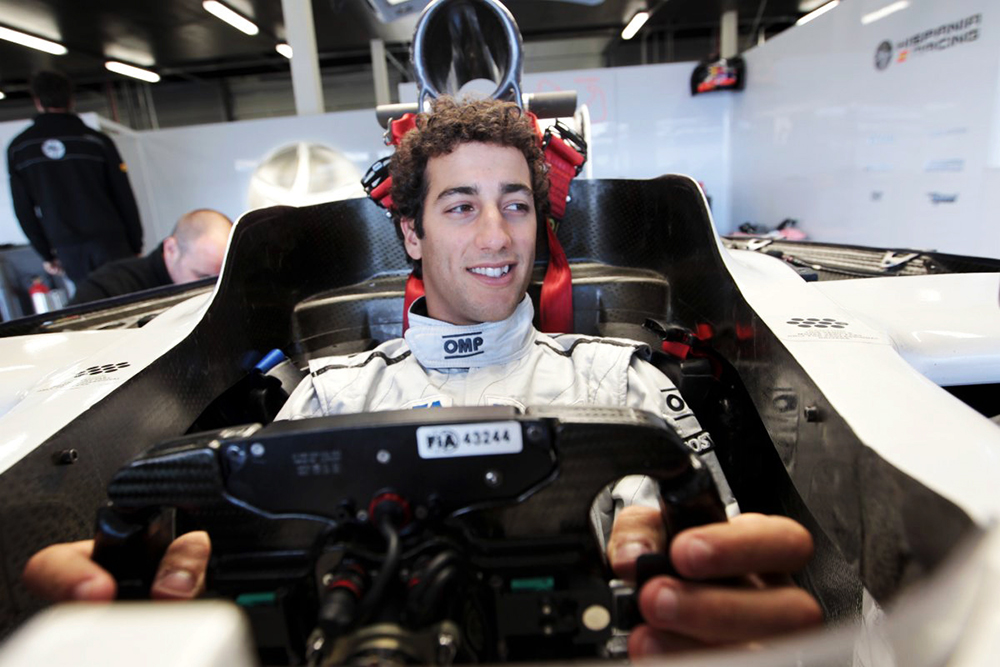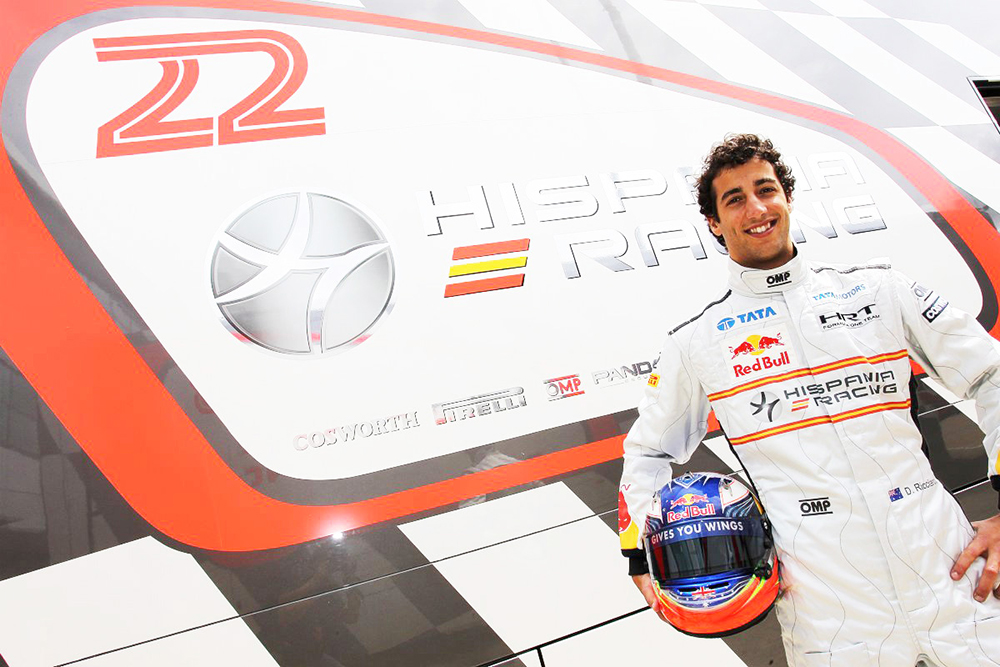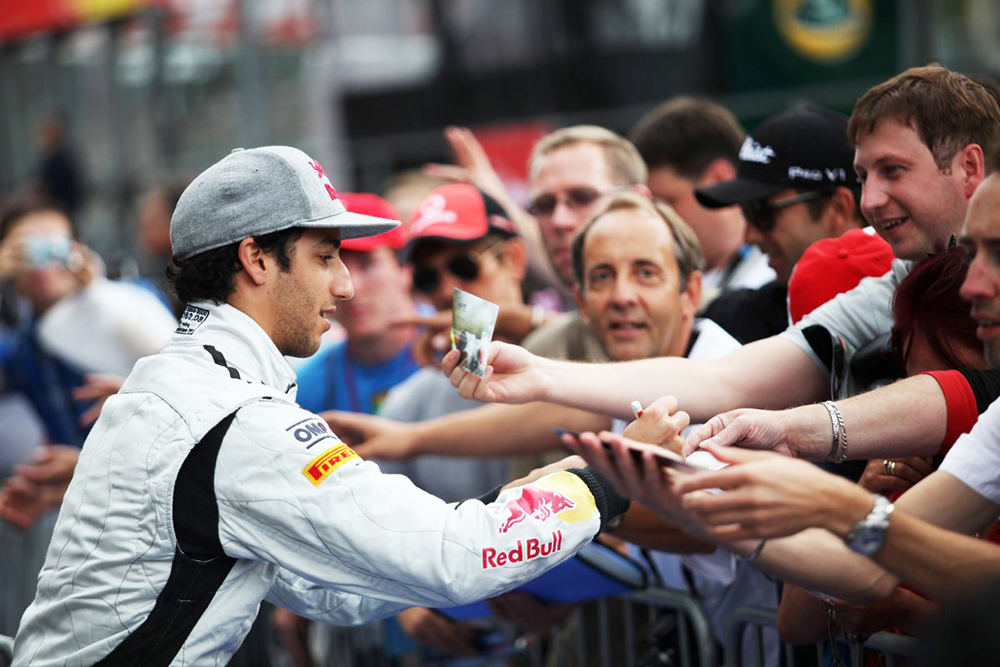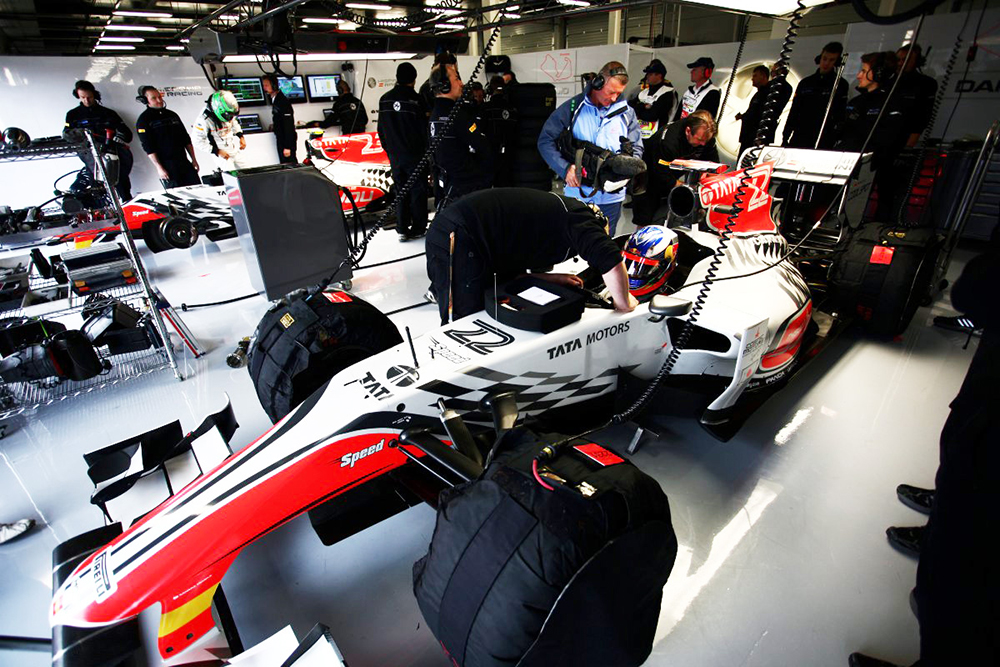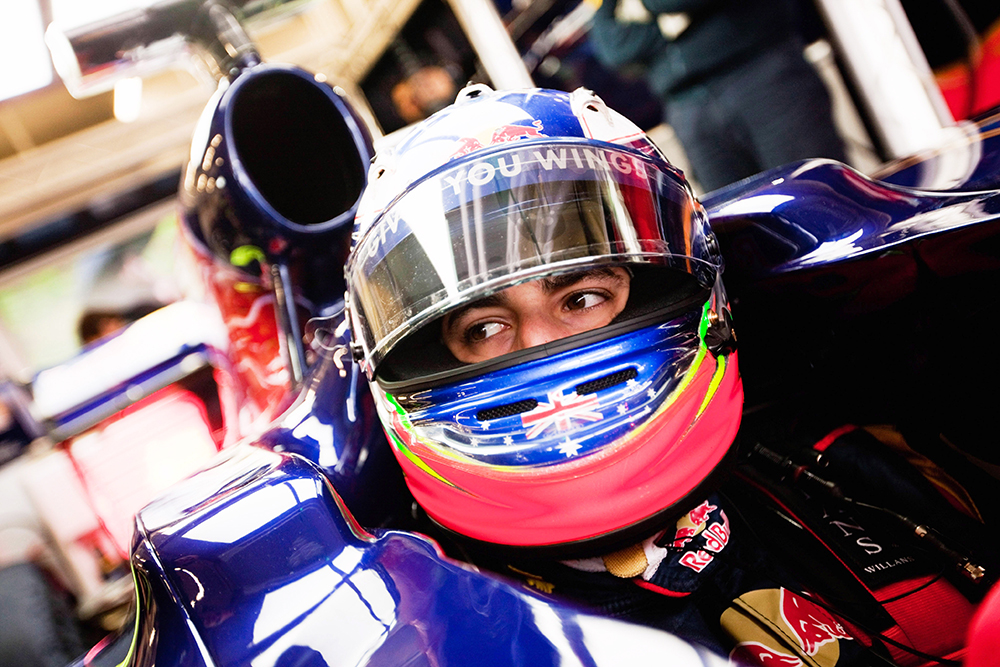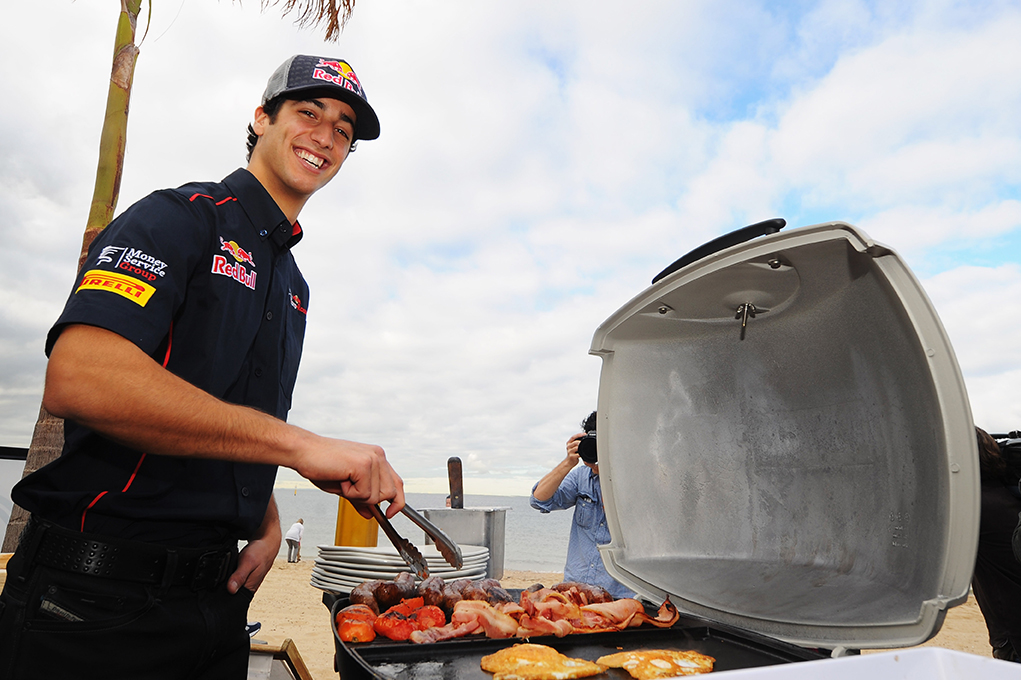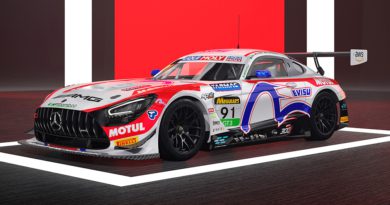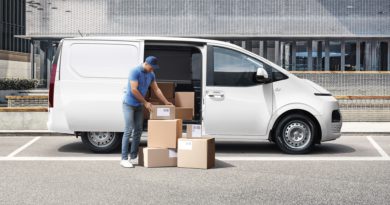Weekend rewind: Daniel Ricciardo
Daniel Ricciardo has come a long way since racing go karts in Perth. In 2011 he became a test driver for Formula 1 team Scuderia Toro Rosso, sister team of F1 powerhouse, Red Bull Racing. To gain race experience, the 22-year-old was on short term loan to backmarker team Hispania Racing before racing for Toro Rosso in 2012 and is poised to replace Aussie Red Bull driver, Mark Webber, in 2013. Darren House sat down with him in Melbourne ahead of the Australian Grand Prix.
ORIGINALLY PUBLISHED IN 2012.
Auto Parts and Equipment: After starting the Formula 1 season as a test driver, how hard was the transition to race driver at the British Grand Prix?
Daniel Ricciardo: The Wednesday of the meeting was a big introduction to Formula 1. It was never going to be easy or perfect, but to finish the race was a good result for us. The most important thing for me was to gain experience (so) it was nice to get the laps under my belt.
Understanding the tyres, the pit stops and the strategy; it’s really very complex and something I have never done before, so in this respect I think it was a step forward. Looking at it now, I’m quite pleased with the result.
Talk me through your race debut.
My start was quite good and coming into the first few corners it was pretty close, but I was probably a little bit cautious as well. I thought (why) try to make a move when it’s wet and visibility is low and risk damaging the car? I didn’t feel it was necessary. I think the team was happy that we brought it home and didn’t do anything silly.
I was quite a bit off the other competitors, but I think that, as I learn, I will get a bit closer. I also needed to manage (being passed under) the blue flags a bit better. It’s not easy.
Having your first official F1 practice session in Melbourne must have been a tremendous thrill.
It was very nice to be out there and get a run in front of the home crowd, and in Formula 1. It is something I probably could only have dreamt of a few years ago as a kid. I think all-in-all it went pretty well and I managed to get some more time in the car; to get a few laps under my belt. The team was happy, so that was good.
Was it harder to debut in front of a home crowd?
It was a little bit. I think because it was my first time on the circuit as well. I have never raced at Albert Park in any previous years, so I was trying to learn the circuit, knowing I only had 20 laps to do it. And I also needed to impress as well despite that outside pressure, so that was a bit more of a challenge.
How did you feel having just one session?
I prepared myself when I got the news that I would be doing the first practice of 2011. I knew I would get out of the session and just want to hop back into the car. I knew there would be a bit of frustration in it, but it was fine. To get 20-plus laps was pretty good and the car was faultless, so at least I got to do that.
How much time do you spend in the simulator learning all of the tracks you haven’t yet raced on?
I have spent quite a bit of time in the simulator, though I still haven’t done all the circuits. I didn’t do that much around Albert Park to be honest with you, but I did enough to get the hang of it. Usually before race weekend, if I am around in England and I am not busy doing other things, then I tend to get in the simulator and really familiarise myself with it.
How effective is the simulator?
The simulator is very useful for preparing you for a new track and it has the additional function of allowing engineers to try different set-ups on the car. It is very realistic in that you get a genuine feel for what the corners are like. It is also a useful tool, as you can cram in the equivalent of a whole day of track testing in just a few hours, as you don’t have to wait long in between changes. You are not waiting for mechanics to physically make changes on the car. It will never be 100 per cent the same as driving on the real track, but it comes pretty close. Also, if you crash, absolutely nothing happens to you (laughs).
How do you feel knowing that to cement your spot as a race driver somebody on the team has to make way for you?
That’s how it is. We are all trying to get a seat, there are a million kids trying to get into F1 and there are 24 spaces available. If someone says, “You are doing better than this kid, we are going to kick him out and put you in”, you are not going to say, “Oh, I feel bad for him, let him have another go (laughs)”. I think as long as I focus on trying to do a good job, the decisions can be made by others. I won’t be turning anything down.
With that in mind, how do drivers work together for the benefit of the team?
You need to be mature about it and respect the situation. When your helmet is on you can do your own thing, it is just you in the car and you are the only one who can put in the good (lap) time.
Outside the car, in the engineers’ meetings, I think it’s fair that you share what you feel and if it can help the team go forward, then you know finally the rest is up to you anyway.
So, I think it’s good to share the information and the data and hopefully it is going to push all of us a few more places up the grid. Everyone seems to be working in that way and that’s the way it should be.
Do you feel tension beyond that?
It’s F1, it’s the pinnacle of motorsport and there is tension. That’s how it is. But there is nothing specific; there’s no evil eyes going on, nothing like that. It’s just the competition of the sport that is driving us to take this role.
There’s a lot going on; you are trying to concentrate on your racing, but you have people like us asking you questions. How do you cope with that?
In the lead up to getting into the car, you need a good half-hour of no distractions, whether it’s listening to music or doing stretching and warming up, you just need a bit of quiet space before getting into the car and then you are set.
The problem is when you are about to get into the car, and you have got two or three people who are trying to tell you something different. At this stage, people around me give me privacy and leave me to my engineer, so it is pretty straight forward.
I was living in a very small town with something like 1600 people and the average age was probably 94.
Has Mark Webber given you any tips or mentoring?
I don’t know if it’s mentoring, but he has been helpful and given me a bit of advice and a bit of motivation.
Last year, the first time I drove an F1 car, he called me the night before. He said, “Go out there and enjoy it. Have some fun”, which was good to hear from him, being a bit of a role model and a bit of a professor.
And last year when I had a bit of an accident at Silverstone (UK) in the (Renault) World Series, that evening he sent me quite a nice message, basically saying we have these days, keep your chin up and we are all behind you. It was good to hear from someone that I have looked up to for a long time; some words of wisdom.
You say ‘a bit of an accident’. It was a roll over. How do you get straight back into a car after a big hit?
There is always a risk when racing; there is a dangerous side to it, so in a way, you are prepared if something bad happens. It happens so quickly. You are strapped in and you brace yourself and fortunately it was pretty soft. It probably looked worse than it really was. I literally didn’t have one bruise on my body, I was pretty happy about that. I realised I was completely fine, undid the belts and got out of the car. That was it, really.
It’s just like if the engine breaks down and I pull over; it is sort of the same feeling. I knew I was out of the race and I was thinking straight away about tomorrow and qualifying. I proved that point quite well when I put it on pole the next day.
You are one of the few people to have driven both the Red Bull and sister car at Toro Rosso. Some conspiracy theorists suggest they are the same chassis with a different engine.
It’s a question I have been asked a few times and I actually have a pretty good answer, because I didn’t drive the Toro Rosso with Bridgestones (tyres) and I have never properly driven the Red Bull with Pirellis. And tyres play a big role. The Red Bull is obviously faster but, to the naked eye, looking at each car, you couldn’t tell the difference.
I think the Toro Rosso is pretty good; balance-wise it didn’t do anything that caught me by surprise. It’s just little things, like in the Red Bull you might be able to brake two metres later, start the throttle one metre earlier out of the corner and, over the circuit, you end up 1.5, or two seconds faster.
I definitely enjoyed driving the Toro Rosso and I also enjoyed driving the Red Bull.
Why will you make it in grand prix racing?
Probably because I am good looking (laughs). Definitely not because of my cheekiness. All I can think is it will happen. Clearly you need speed and I have proved that over the last few years. How I got that, I’m not sure. I guess a lot of it is natural ability, and I talk to people who are more experienced who I feel I can learn something from them.
It’s what I have always wanted and I definitely don’t want to go back home to Australia after making all of these sacrifices and moving away from home, with nothing.
Hopefully in a decade’s time I will go back home and take something from it. A world title would be nice.
What are some of the sacrifices you have made?
Mum’s cooking is definitely one of them. I left home when I was 17. I guess it doesn’t sound like much, but at the time me and my friends had a pretty good social life. I missed a lot of… I don’t know if it’s childhood… but the days of finishing school and those years of having a good time. A lot of the time I was in the gym or training on a weekend.
How did you find moving to Europe and away from your family at such a young age?
It can be very lonely. Looking back at my first year in Italy, I don’t know how I got through. I was living in a very small town with something like 1600 people and the average age was probably 94. I had about three TV channels, all in Italian and no internet. I just got by with the gym and DVDs or my laptop and that was all I had. But I was having that much fun when I was racing that it made up for all the boring times.
How do you keep in touch with what is happening back home?
They show a few AFL replays on Eurosport in England but, other than that, usually it’s just via the internet or speaking with friends. I’ll ask how are things back home and they will give me the run down on the footy or V8 Supercars or things like that. Usually I am on the phone or Skype or Facebook.
You do lose touch with things, which sucks. I am used to watching Friday night football. I follow West Coast (Eagles), so it’s great that they did better this year than last year.
At what age did you decide you wanted to go this far?
When I first went to Europe I was determined to make it happen, but I still didn’t really think it would because deep down I knew it was still a very big task ahead. The big break was getting on board with the Red Bull (driver development) program because I knew if I did what they expected I would then have a chance. They had an F1 team and that was the final step. All I had to do then was perform; do the job and get the results.
My first year with them was very good and it was then that I truly realised I could go on. The team was happy with what I was doing. You always want to believe you can do it, but that was when I truly did.
Engineers talk to drivers just before they go out on the track? What do they say?
It’s normally just going over what you have previously talked about at a meeting an hour before, basically finalising what to do on the car. The engineer might say, “We have done a certain thing to the car, do you have any last thoughts or are you happy with this?” It might be, if it’s looking like rain, do three laps then come in, or if we see the times drop a lot then we will put other tyres on.
It won’t be motivational talk from the engineer. He won’t be telling you how to drive. It will just normally be the reality of what you have on the car.
Do you communicate much while you are on the track?
It depends on the situation. If you’re pushed for time – let’s say you have to come into the pits to change tyres and want to go out again before the (practice) session is over – then maybe on your in-lap, as you are coming into the (pit) box, they might ask what the car balance is and you will tell them while you are still driving so when you do come into the pits they are ready to make a change rather than coming into the pits and then asking you.
It’s pretty brief and it doesn’t distract you while you are out there. It’s pretty natural to hear them talking; you don’t freak out or anything.
Is there, as some drivers claim, too much to do in an F1 cockpit these days?
You get used to it. I think all the drivers now, after doing pre-season testing and playing around with everything, would be used to it but yeah, it’s busy.
If you have seen (Michael) Schumacher’s on-board camera, it is obvious he is always changing things. It’s like he is doing martial arts while driving; he is doing all sorts of things but it is just part of the job now. I am used to it.



